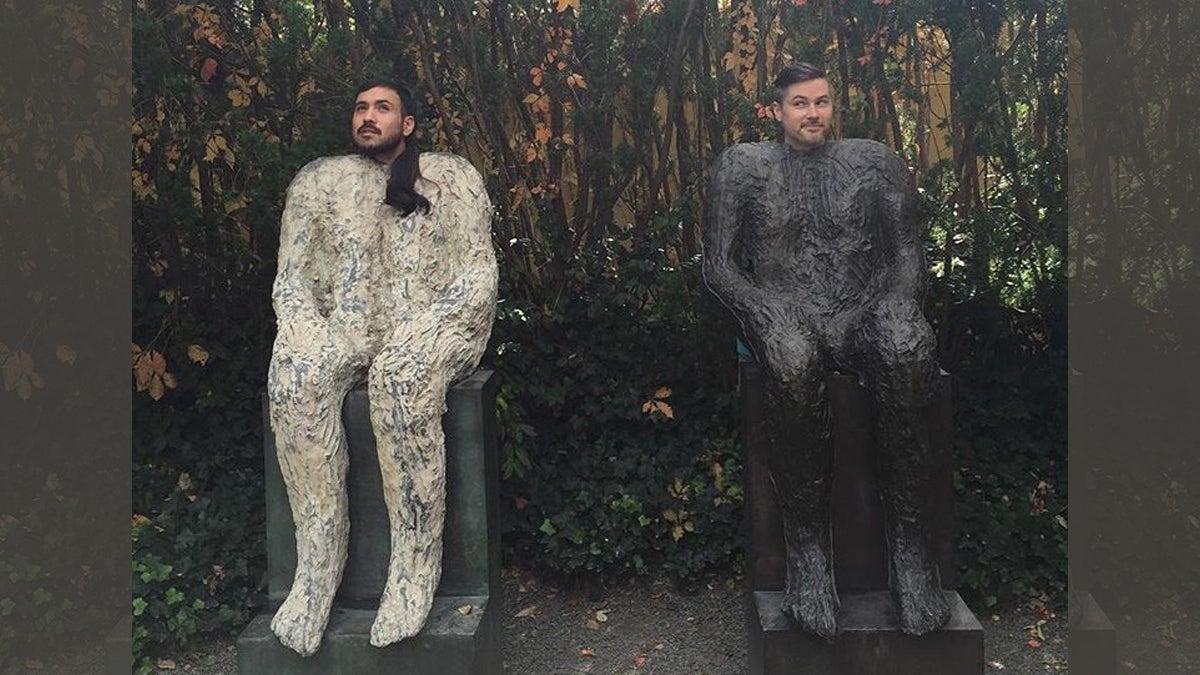Observing traditional holidays in updated ways, new expressions

Sergio Cea and his partner Paul Miller at Grounds for Sculpture in New Jersey to celebrate Miller's birthday. (Photo by Jen Twigg)
For LGBTQ couples, celebrating Father’s Day or Mother’s Day can be tricky.
And as more children are raised in nontraditional families, these holidays are growing and changing.
For Sergio Cea, Father’s Day has always been hard. He was raised by his mom. The two are very close. But he doesn’t have much of a relationship with his dad.
“Father’s Day, for me, is kind of just a reminder of all the love that other people seem to have been getting that I didn’t,” he said.
Now, Cea, who identifies as queer, has to contend with another issue. When he and his partner imagine a future where they have kids, they often wonder what kind of language they’ll use.
“Most of our conversations have centered around, ‘Well, who would be called what?’ And just because we’re a Latino/white kind of really mixed relationship — I always was just like, ‘Well, I guess I’d be papa, and you’d be dad,” he said, referring to Paul Miller, his partner.
But Cea said they’re unclear on how they’ll actually celebrate Father’s Day or Mother’s Day.
“How do you handle that as being two women or two men? Who gets the day off?” he said. “Do you each take one — you take Mother’s Day, and you take Father’s Day?”
Cea said he and Miller will probably have to reinvent things. Maybe they’ll just focus on the whole family that day, he mused.
And it’s not just queer couples who reinvent holidays. It’s also single parents, people raising their grandkids, extended family — the list goes on. In 2014, fewer than half of U.S. kids younger than 18 were living in a home with two married heterosexual parents in their first marriage, according to the Pew Research Center.
And language is not keeping up with that family diversity, said Jacqueline Hudak, who teaches family and couples’ therapy at the University of Pennsylvania.
“The families have kind of outlived these binary, you know kind of holidays. I mean they’re lovely. Look, I’m a mom,” she said. “I like Mother’s Day, but I think sometimes our language is both inaccurate and antiquated when it comes to talking about familial relationships.”
In a few years, Hudak said, the holidays might have less to do with the words we use, and more to do with the people involved.
WHYY is your source for fact-based, in-depth journalism and information. As a nonprofit organization, we rely on financial support from readers like you. Please give today.




